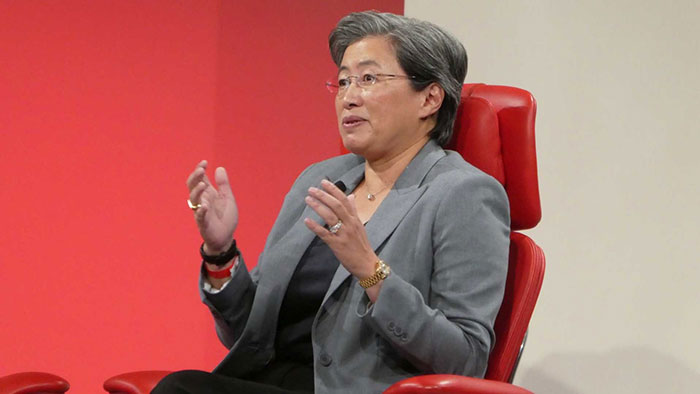On Friday, HEXUS reported upon Intel's groundbreaking ceremony in Arizona, as it sent in the diggers (both symbolic human and practical mechanized types) to get started on the building of two new leading-edge chip fabs. Towards the end of the article I highlighted that the welcome expansion of chip making facilities might have some degree of unwelcome impact on chipmakers, as the industry swings from shortages to oversupply, but this has typically happened over time for semiconductors and seems to be the nature of the business.
At the beginning of the week, the CEO of one of Intel's major rivals was interviewed about the fortunes of the industry. AMD CEO Dr Lisa Su was questioned about microprocessor supply chain bottlenecks, work on improving the situation, and projections for when supply will ease.

"We've always gone through cycles of ups and downs, where demand has exceeded supply, or vice versa," Su said at the Code Conference in Beverly Hills, California. "This time, it's different." Reading on, the AMD CEO clarifies that "the pandemic has just taken demand to a new level". So we have a demand swing wider than usual, and the cyclical nature of the business looks set to continue. After such a strong impact, though, it will still take quite a long time to recover this time around. Su predicts gradual improvements in supply will start to be felt / noticed by H2 2022.
The key to the turnaround is that "manufacturing plants that were planned last year will likely start producing chips in the coming months," indicated Su. Semiconductor responses to shortages can easily take two years to create an impact on supply due to planning, budgeting, facility expansion, and production preparation times.
AMD, like many other tech giants, has done well during the pandemic. CNBC notes that its shares are up 120 per cent since the start of 2020, a very nice increase for investors who have had confidence in the firm. AMD, unlike Intel, is entirely reliant on third party companies to manufacture its processors, but the whole industry looks like it intends to expand at breakneck rates. In related news, TSMC reportedly plans a US$7.5 billion expansion into India.













